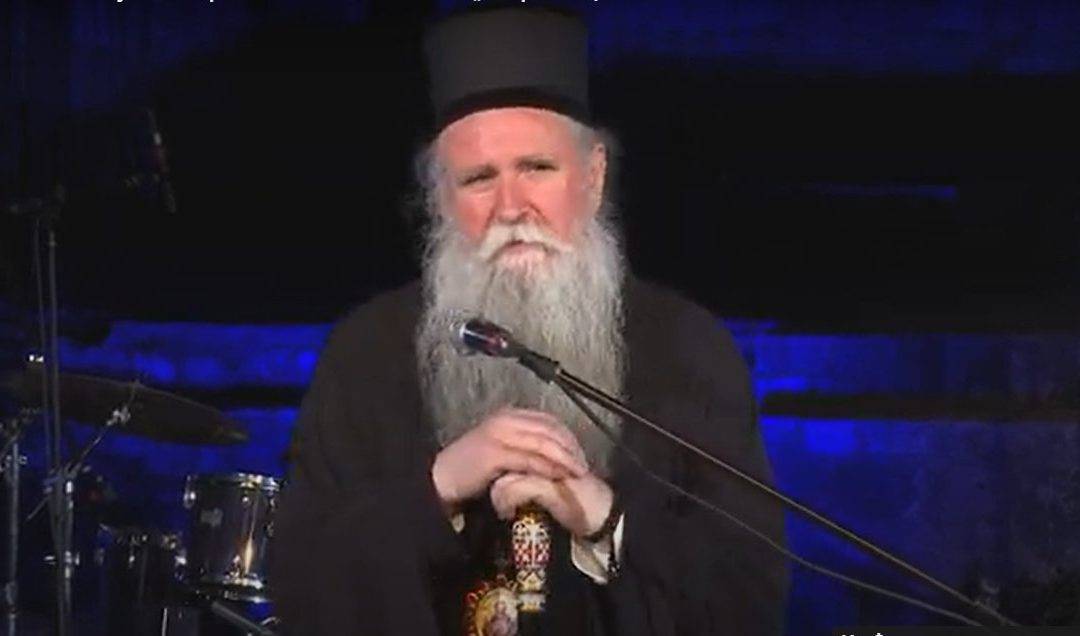
With the lecture of Metropolitan Ioanniki about "Oktoih" in Budva, the eighth Festival "Ćirilica" began
The eighth "Ćirilicom" Festival was officially opened last night on the square between the churches in Budva's Old Town, in the presence of the organizers - the Budva National Library and the Association of Publishers and Booksellers of Montenegro, the head of the Municipality of Budva, Metropolitan Joaniki of Montenegro and the Littoral, and the clergy, cultural workers and a large audience. , it was announced from the PR department of the Festival.
As they point out, in the introductory presentation, the director of the Budva National Library, Mila Baljević, reminded that the Festival invites us to write in Cyrillic and not to renounce it, but to use Cyrillic as well as other letters. Baljević pointed out that the meaning of cultural desires in today's time should be found in that harmony.
The "Cyrillic" festival was created as a call to prevent disrespect for our cultural heritage, which is centered around the Cyrillic alphabet and the spirit of the Cyrillic alphabet. We constantly pointed out this disrespect and thus the mission of the Festival, not only in Montenegro, also had a great impact. Our advocacy for the equality of letters is shown, as was the meaning of the struggle of Stefan Mitrov Ljubiša, both then and now. In the National Library of Budva and in the Association of Publishers and Booksellers of Montenegro, which are the organizers of this famous festival, not equal to such a high task, we invested all our knowledge and skills in order to highlight the importance and importance of what is unquestionable proof
our spiritual stability in which the Cyrillic alphabet brought us together", said the director of the Budva National Library.
The festival was officially opened by the vice-president of the Municipality of Budva, Jasna Dokić, who said that since 2017, Budva has hosted an event of special social importance for the cultural development of the city.
"The festival began its tradition as a literary festival, and from year to year it developed into a multidisciplinary event. I would like to point out that Montenegro is one of the countries where two scripts, Cyrillic and Latin, have equal constitutional status. A nation that truly respects the diversity and diversity of other cultures must first of all turn to its own culture. At the basis of identity lies the letter, and this festival for years
cherishes the Cyrillic heritage as part of the European cultural heritage. From the point of view of the Municipality and the city, it is significant that this festival not only enriches the cultural life of citizens with a new type of content, but also contributes to the diversification of the tourist offer, building on other events in the cultural sector with an approach that is
diverse and different. This year's program of the opening of the Festival is the commemoration of 530 years since the first Cyrillic printed book of the South Slavs in 1494, "Octoiha Prvoglasnik". I would like to thank everyone who participated in the organization of this very significant event
manifestations and who gave and are giving their great contribution so that our first letter is not forgotten. "Cyrillic is the foundation of history, culture and literacy, which makes us one of the chosen peoples in the overall European culture," said Dokić.
Đurađ Crnojević and the priest Makarije - visionaries ready for a great deed
This was followed by a program dedicated to "Octoichus the first vowel", the first Cyrillic printed book of the South Slavs, about which, referring to the spiritual and historical context, Metropolitan Joanikije of Montenegro and the Littoral spoke. As he explained, the Oktoich as a liturgical book was formed at the end of the 8th and the beginning of the 9th century, it was later revised, and it was translated into the Slavic language very early on.
"What is actually in Oktoikh? We find various topics covered, but expressed in a poetic way. Saint Basil the Great spoke about the importance of singing in the church, so he said that what is communicated in the church is divine, sublime and in many ways inaccessible to the human mind truths. But chanting simply awakens the human being, the senses, the will, enlightens the mind, and by chanting and communicating through chanting, the faithful are equipped to receive these highest spiritual contents. Biblical topics, dogmatic topics, topics related to spiritual struggle prevail, but the content of spiritual life is also communicated. So, one book of the greatest possible importance for worship, and therefore for the life of the church", said the Metropolitan.
The Metropolitan said that there are a full 300 years between the "Gospel of Miroslav" and the "Cetin October", and that, in this sense, "Cetin October", as he stated, can be seen as a continuation, and perhaps the end of an era.
"The era of Nemanjić, the era of creation, the era of our greatest glory that we have reached in history. But, unfortunately, even before the release of "Cetinjski Oktoih", and during his time, our old glory began to fade. And that time ended in the most sublime, somewhat tragic way. All the wars had already been lost, the state was on its way down, no support and no support from anywhere for the remnants of the great Serbian empire. But God sent two great men - master of Zeta, Đurđ Crnojević and priest-monk Makari of Montenegro, both visionaries ready for a great work. Both had connections with the cultural world in the west. Makarije was obviously well trained in the art of printing in Venice, and Đurđe Crnojević, unlike his father, who often took up the sword and who was a great founder in the spirit of the famous Nemanjićs, did something different but no less significant than his great father and the founder of the Cetinje monastery - he founded the Cetinje printing house," said Metropolitan Joanikije. Academician Jelušić emphasized that the jubilee is an opportunity to ask the question about the meaning that the Cetinje printing house has for us today and here, not only as a historical memorial or archival artifact, but incomparably more than that.
First of all, he noted that according to the data found in the very extensive literature, being in constant contact with Venice where printing was developed until 1469 and where around 150 printing presses worked in that period, Đurađ Crnojević was undoubtedly familiar with advantages of printing.
"That's how his printers, led by Hieromonk Makari, managed to publish five church books in the Serbian variant of the Slavic language in the period from 1494 to 1496, before both the state and the printing house disappeared under Turkish power. Đurđ Crnojević's printing house remains one of the oldest Cyrillic printing houses in the world, next to Feola's Cracow printing house, whose first book saw the world in 1491, that is, only three years before our "Octoi". The general point in the presentation of this printing house is that the mission of the printing house was in resistance to spiritual enslavement and defense of spiritual Christian self-awareness. "For this reason, only Orthodox religious books were printed, because at this moment the most important thing was the resistance to programmatic Turkish Islamization and, of course, the preservation of the Orthodox Church and religion," said Academician Jelušić.
He asserted that Đurađ Crnojević was undoubtedly a person of the deepest Christian feeling, a lover of books and himself a very gifted theologian with a special sense for literary design.
"Perhaps the best way to convince us of this, among other things, is Đurđev's testament, which is otherwise claimed to be the best testimony to his literary inclinations. A testament that contains some form of theology of love, reminiscent of Despot Stefan's "Letter of Love". The testament says: By this, people will be able to know the true love you had for me, when they see that you love my soul after death," added Academician Jelušić.
The first evening of the festival ended with a concert by Bojana Peković and the group "Artistic Family", who offered the audience an interesting interpretation of ethnic music in a modern arrangement.
The 8th Festival "Ćirilica" will continue tonight from 21:00 on the Square between the churches with a program dedicated to the great Budva artist Jov Ivanović, the founder of the Modern Gallery. About Jov and his personality in the sense of a Mediterranean bohemian, a man from Budva who left a big mark on our city will be spoken by: his daughter Marija Ivanović, old citizen Jeronim Dragičević, architect Slobodan Mitrović and prof. Dr. Aleksandar Čilikov.
The festival is held until September 14, with the support of the Municipality of Budva, the Tourism Organization of the Municipality of Budva and the Public Enterprise for the Management of the Maritime Assets of Montenegro.
Source: RTV Budva
PHOTOS
RELATED ARTICLES
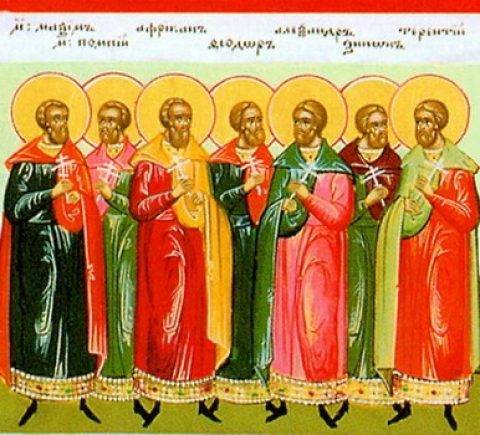
Calendar for April 23 The Holy Martyrs Terentius, Africanus, Maximus, Pompey and Others
They suffered for Christ and were crowned with a crown of glory during the...
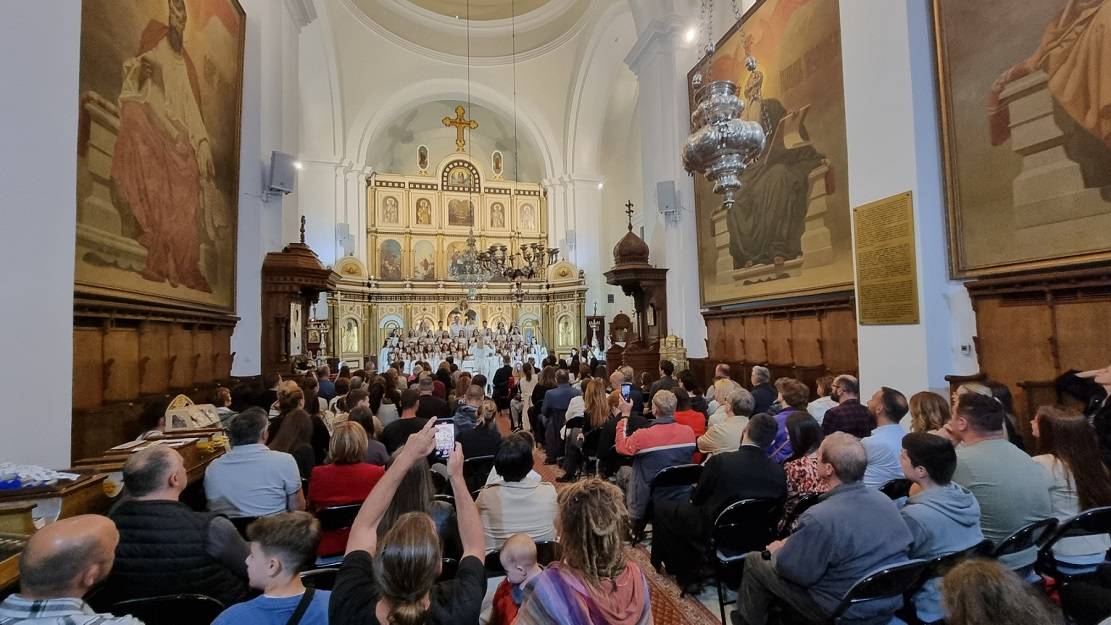
EASTER CONCERT OF THE CHILDREN'S, YOUTH AND SENIOR CHOIR OF THE SPD JEDINSTVO HELD
In the Church of St. Nicholas in Kotor, the Easter concert and another, to say...
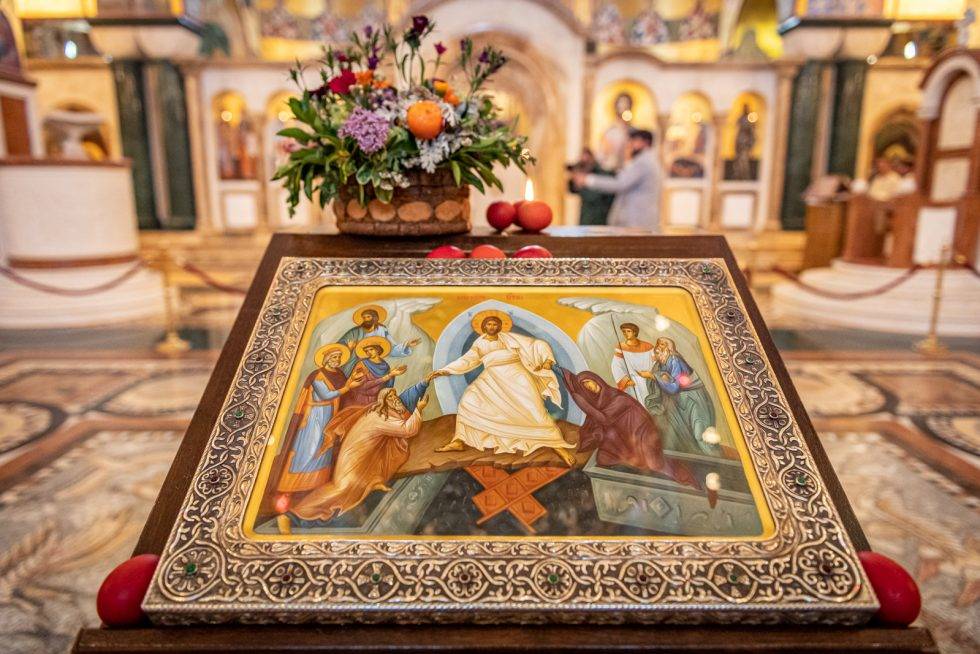
Easter Tuesday
Maundy Tuesday, Easter Tuesday (Greek: Τρίτη...


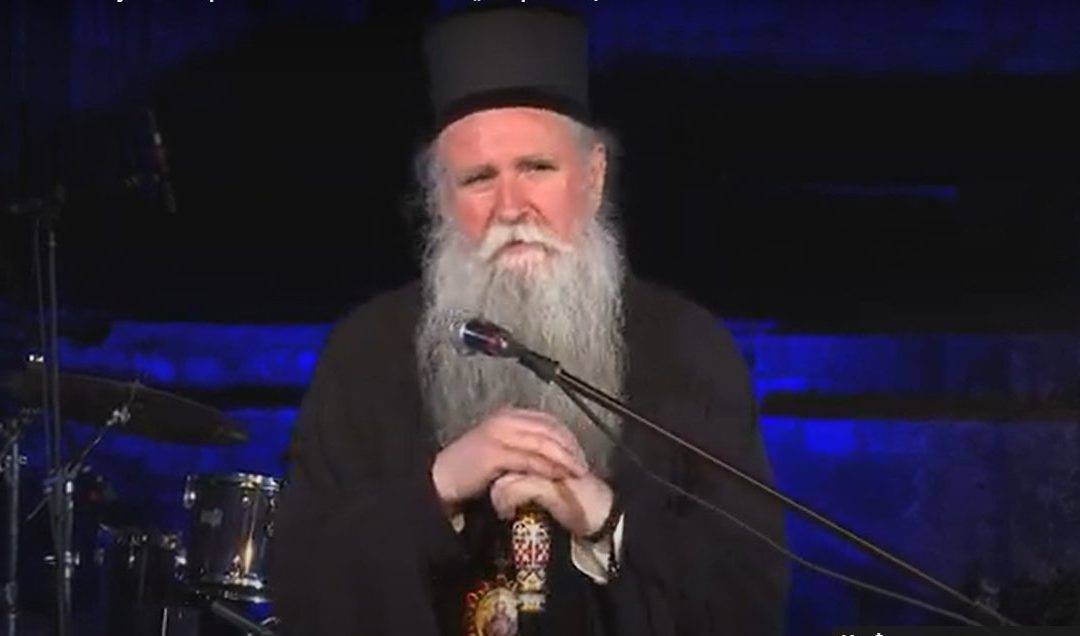

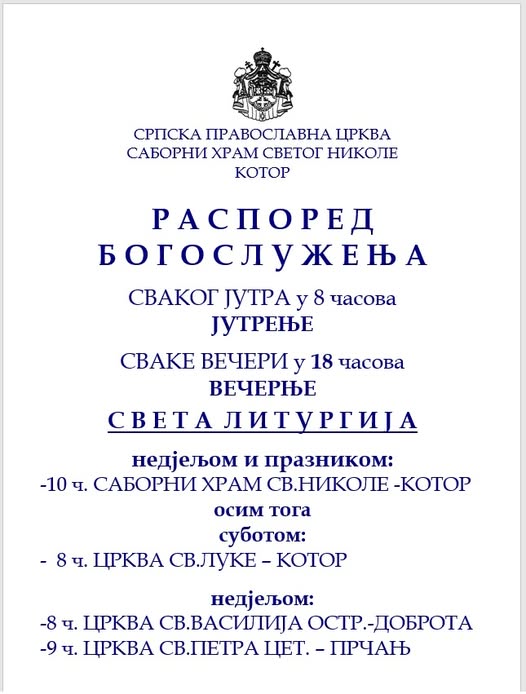
.png)